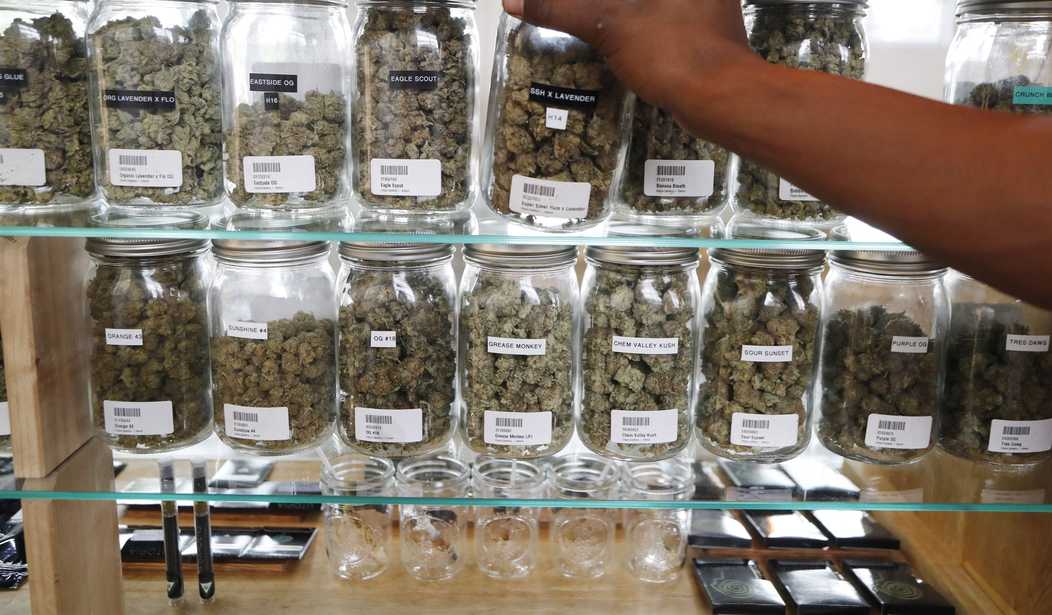"From Washington State to West Virginia, psychiatrists treat rising numbers of people whose use of the drug [marijuana] has brought on delusions, paranoia and other symptoms of psychosis," says a New York Times article on the growing realization that marijuana isn't 100% safe and non-addictive for everyone.
Indeed, America has been sold a bill of goods on the legalization of cannabis. While the majority of people who smoke or eat cannabis products do not become addicted or suffer any harmful effects, a significant number of people do.
"About 18 million people — nearly a third of all users ages 18 and up — have reported symptoms of cannabis use disorder," according to estimates from data analysis by a Columbia University epidemiologist. This means that these users continue to ingest marijuana despite the negative effects on their lives.
Of those 18 million, about three million are considered addicted.
"Cannabis use disorder" is a catch-all designation that includes a wide variety of symptoms.
The estimates are based on responses to the 2022 U.S. national drug use survey from people who reported any cannabis consumption within the previous year. The results are especially stark among 18- to 25-year-olds: More than 4.5 million use the drug daily or near daily, according to the estimates, and 81 percent of those users meet the criteria for the disorder.
“That means almost everybody that uses it every day is reporting problems with it,” said Dr. Wilson Compton, deputy director of the National Institute on Drug Abuse. “That is a very clear warning sign.”
Too much of anything is bad for you. The question that needs to be researched and answered is whether too much cannabis can become addictive or harmful.
There is some evidence that chronic use of cannabis can lead to debilitating disease. A condition known as "cannabinoid hyperemesis syndrome," a condition caused by heavy cannabis use and marked by nausea, vomiting and pain which can lead to extreme dehydration, seizures, kidney failure, and cardiac arrest.
Since the syndrome was first documented in 2004, doctors say they have observed a sharp rise in cases. Because it is not recorded consistently in medical records, the condition is nearly impossible to track precisely. But researchers have estimated that as many as one-third of near-daily cannabis users in the United States could have symptoms of the syndrome, ranging from mild to severe. That works out to roughly six million people.
There is no doubt that cannabis is benign — for most people. The same could be said for alcohol. No personality disorder makes someone more likely to become addicted to alcohol or marijuana but certain personality traits may increase the likelihood of addiction. These include impulsivity, sensation-seeking, risk-taking, low self-esteem, and emotional instability.
Before the cannabis boosters dismiss this study as just one more attempt to recriminalize weed, not one of the 600 medical professionals interviewed for this Times article advocates that. What they all agree on is that more studies must be performed to get a clearer picture of what the real risks of cannabis use are.
Ten years ago, I wrote about the lack of research on pot and its effects on mental and physical health.
There has been far less research on the effects of pot on the body and brain than there has been on alcohol and tobacco. The evidence, for instance, that pot smoking can lead to an decrease in the production of serotonin — a brain chemical associated with mood and depression — is pretty well established. There is impact on memory, mostly long-term memory, as well as lingering effects on the heart, lungs, and kidneys.
Is it the unregulated THC content? Are there additives by producers that are contributing to the ill effects on some people? Too many politicians dismissed any concerns about the negative effects of legalizing marijuana and here we are, wrestling with the unknown factors that are destroying some people's lives.
For many millions of people, marijuana is a godsend. It eases anxiety, whets the appetite of chemo patients, and facilitates feelings of well-being in users.
But for some, no "moderate" amount of the drug is safe.










